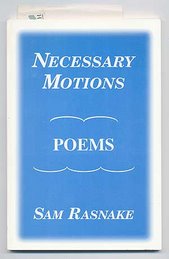scribbling dust when I turn...
William Stafford
– a poem from Even in Quiet Places
Sometimes
When they criticize you how do you
hold your wings? I hold mine out
and down, descend a little, then more.
Cool air comes. Nobody cares how low
I descend, and the way my eyes close
makes me disappear. They have their sky again.
So thin a life I have, scribbling dust
when I turn, trailing as if to follow
something inside the earth, something beyond
this place. If I accept what comes,
another sky is there. My serious face
bends to the ground, the dust, the lowered wings.
*
This remarkable little piece is an exacting view of self and other. I’m always amazed by how Stafford – as he put it – “closed down a poem”. Ending with the wings lowered is an such inviting image for the reader.
I like the hush and near stillness in a Stafford poem. Here, the thin life that scribbles dust is quite strong. And the trail that is followed? … not spelled out. There’s no need. That would hinder the force of the poem. He writes, “something beyond / this place” – and leaves it at that.
One of his great gifts is his ability to always engage the reader. The writing is very direct. All the excess, gone. The words – in all his work – clean and minimal … but the thoughts are immense, unstoppable, life-changing.




















